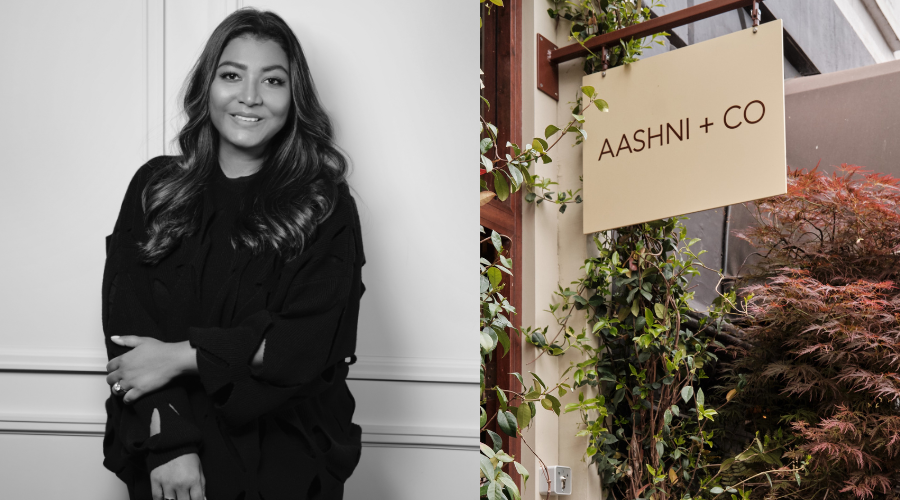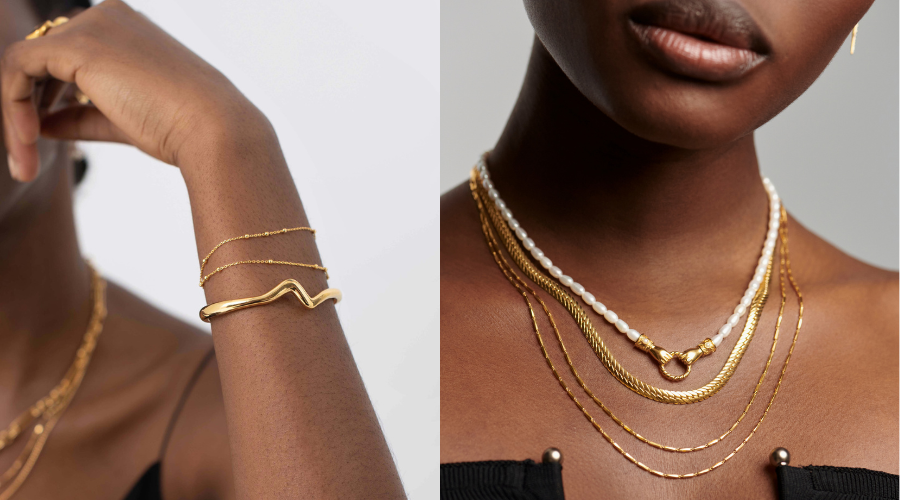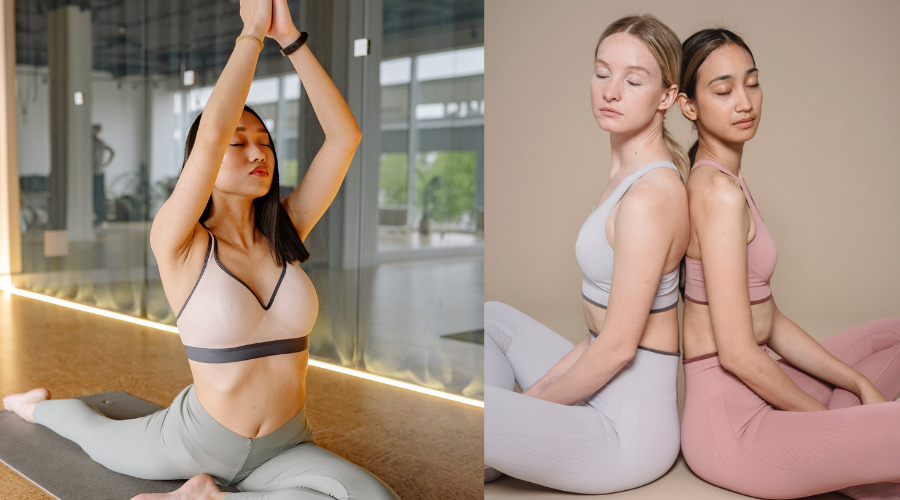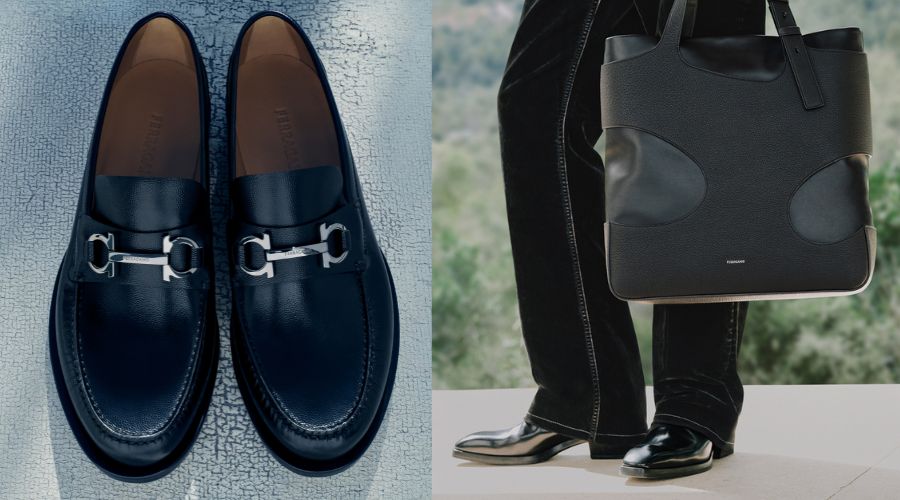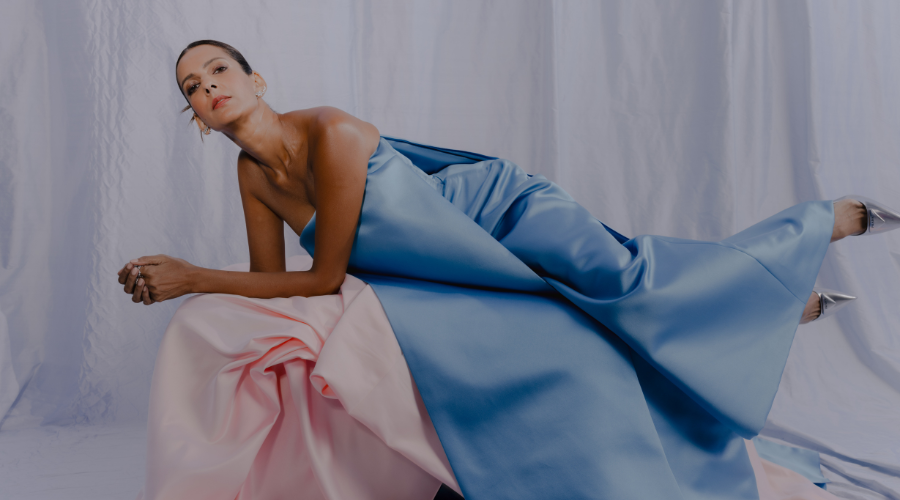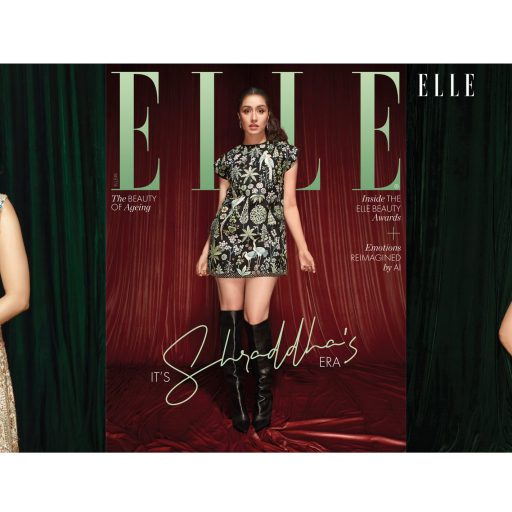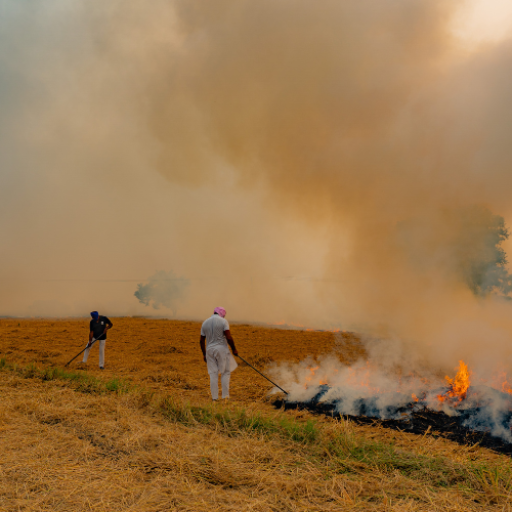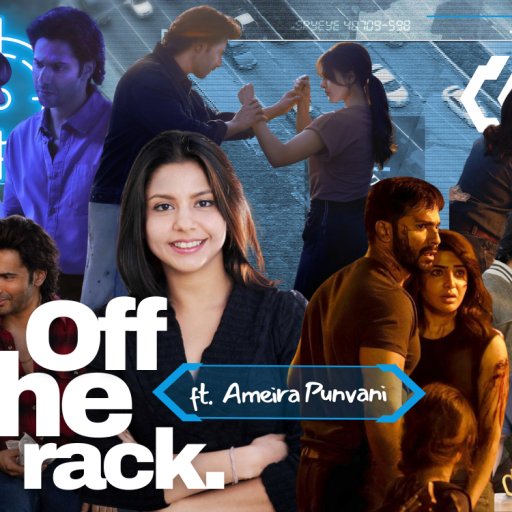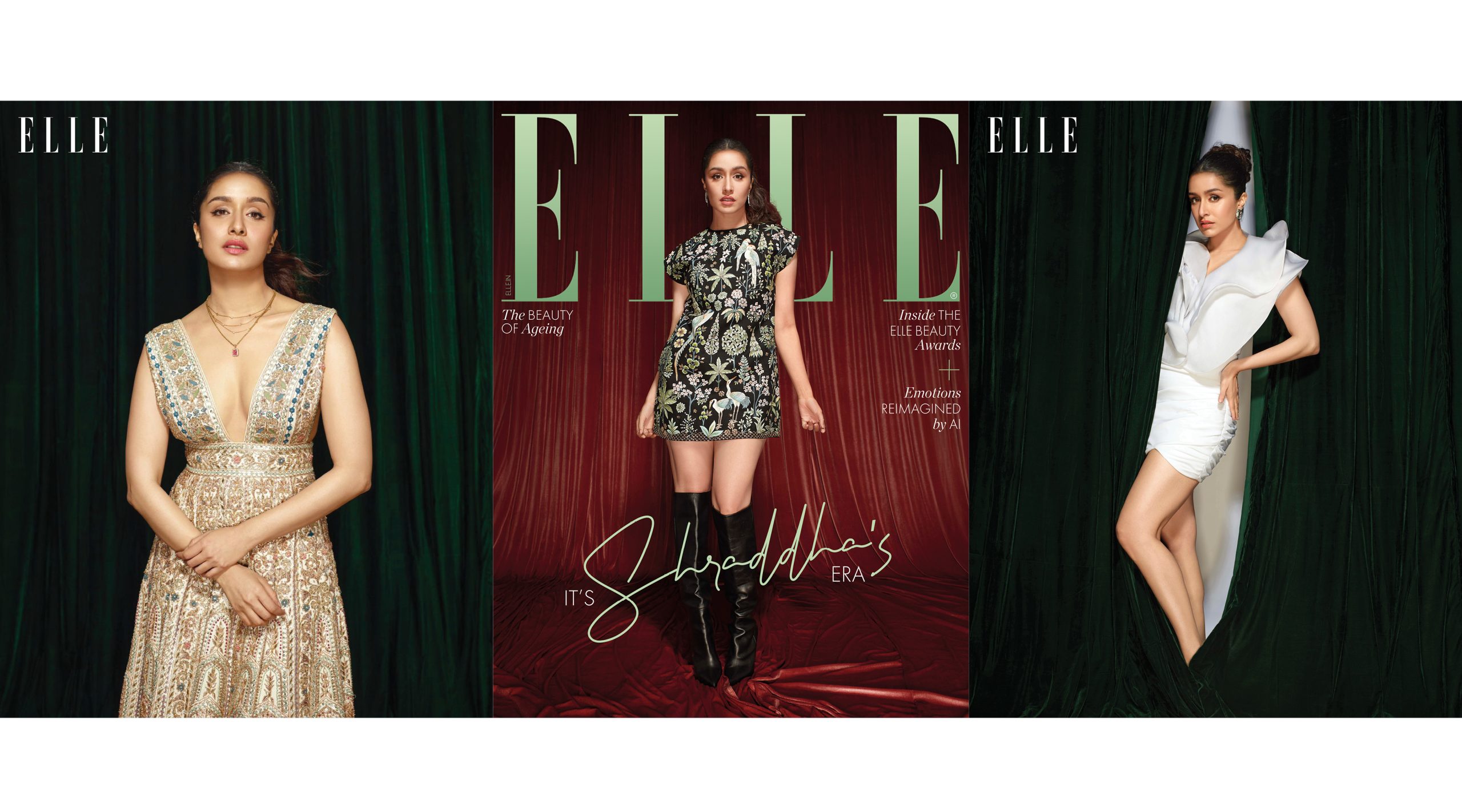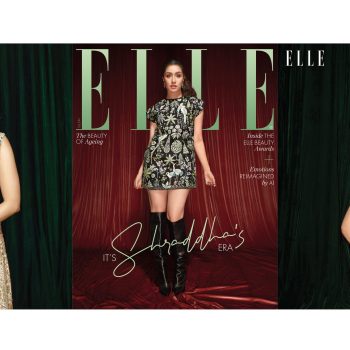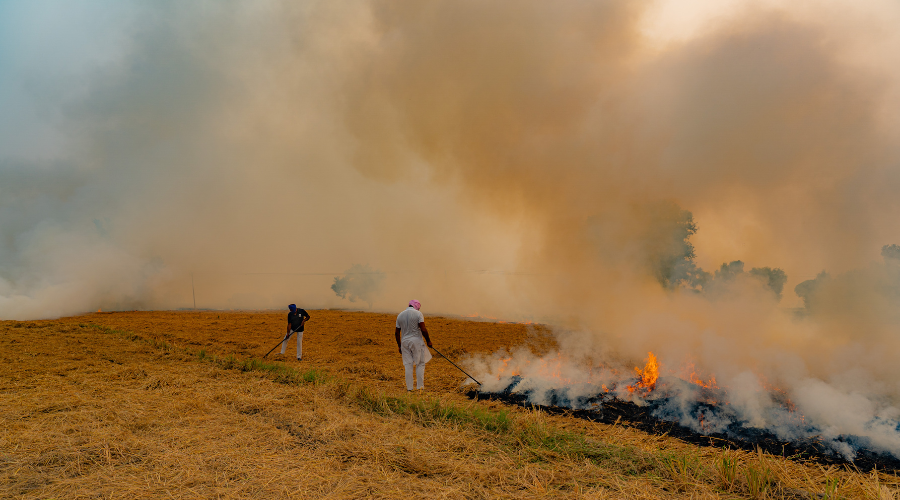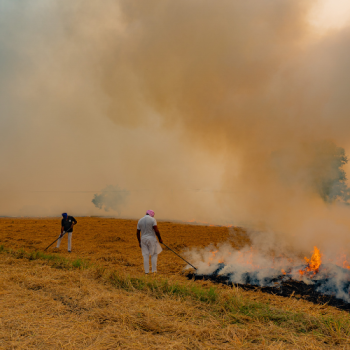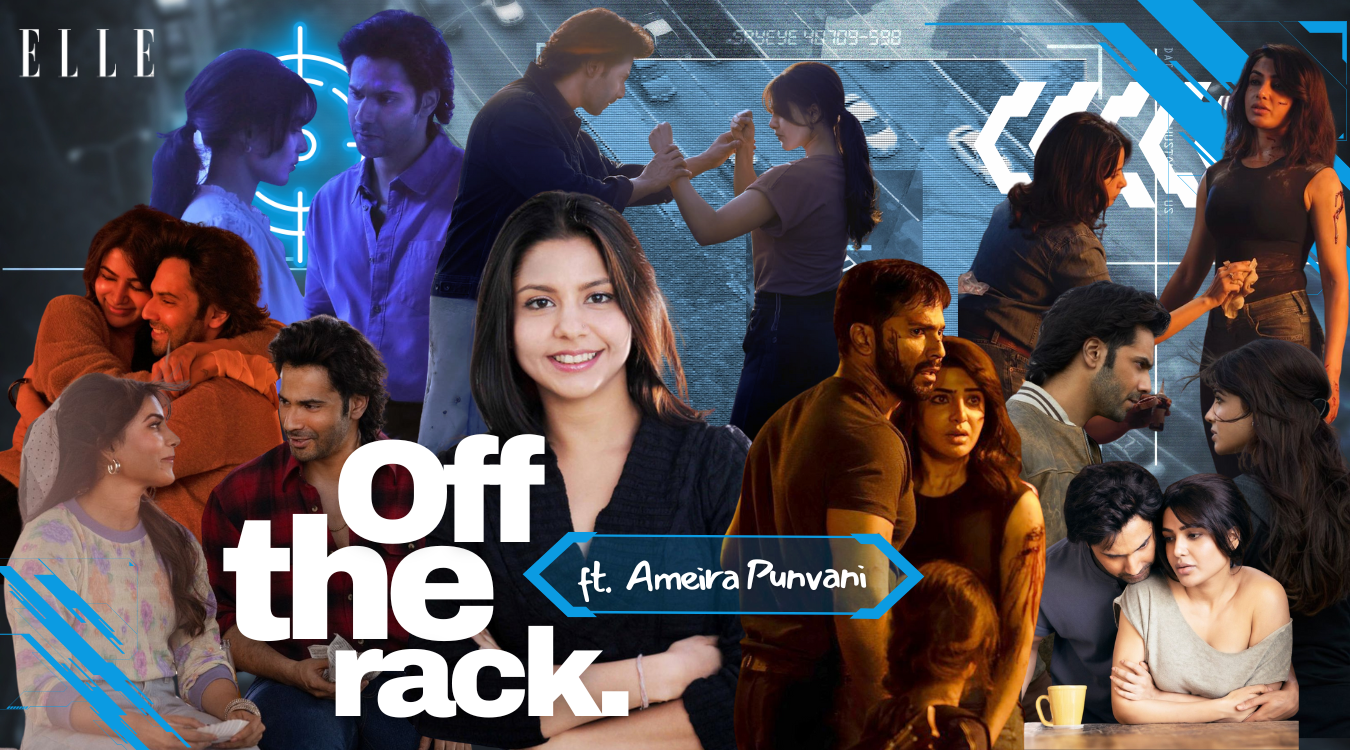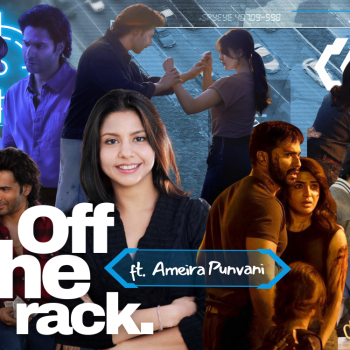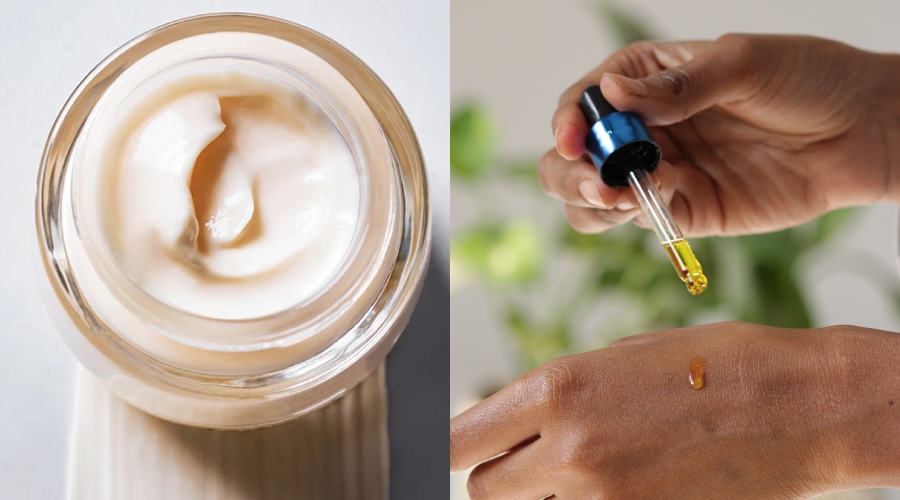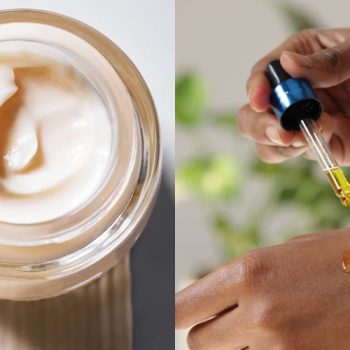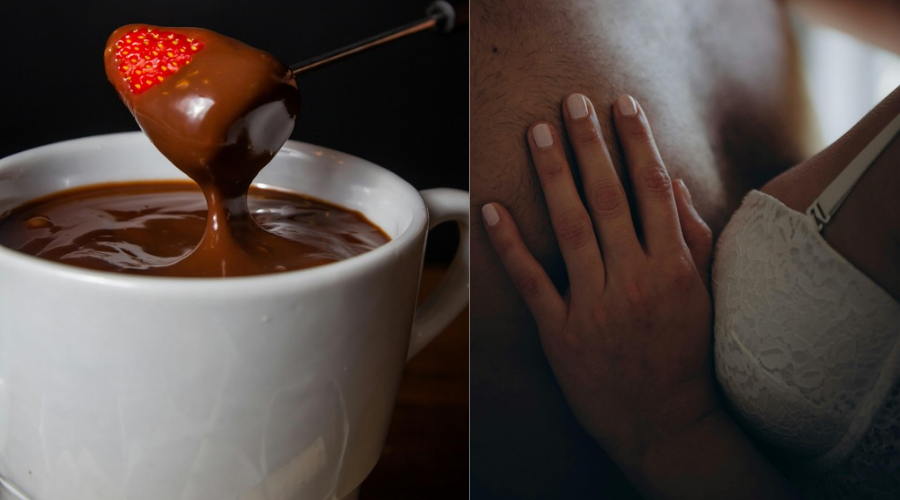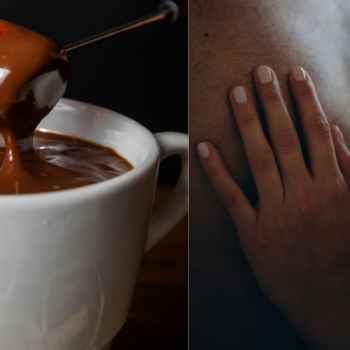I remember watching Poorna for the first time in Yeh Jawani hai Deewani alongside Ranbir Kapoor, where she played a very cool travel host for the TV show. Fast forward to 2020, Jagannathan’s character in Never Have I Ever as Dr. Nalini Vishwakumar, has captivated audiences worldwide. As a fan, I vividly remember binge-watching the series, in awe with not just the humour and heartwarming moments but also by the authentic representation of an immigrant mother’s struggles and triumphs. In the vibrant world of television, few characters resonate as deeply as Dr. Nalini Vishwakumar. Poorna’s interpretation of the character was refreshing, making her relatable to many viewers. As she now gears up for her new movie Wolfs, ELLE India had the opportunity to dive into her experiences working alongside Hollywood legends like Brad Pitt and George Clooney, her insights on navigating complex roles, and how her own life experiences shape her performances. With warmth and wit, she opened up about the joys and challenges of being a global nomad in the entertainment industry.
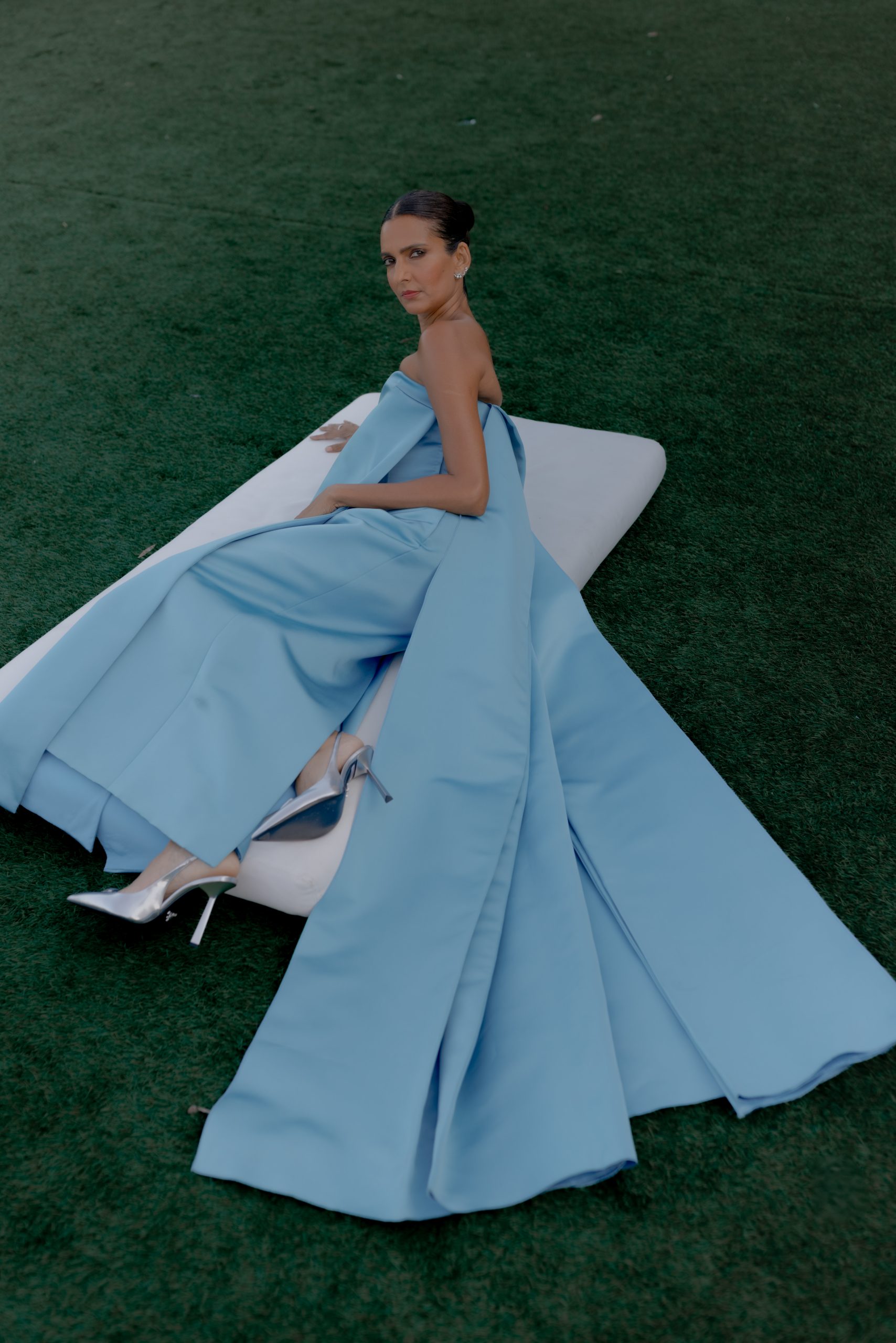
ELLE: In Wolves, you share screen space with Hollywood icons like Brad Pitt and George Clooney. How was it working with them? Any behind-the-scenes moments and stories from the shoot? Or any insights and lessons you’ve learnt from them?
Poorna Jagannathan: It was spectacular. I could have stayed on that set forever. They couldn’t have been funnier, warmer, or more hot. They did everything they could to include me from the minute I walked on set. There are so many stories – they put me in Brad Pitt’s trailer instead of mine by mistake and it was bigger than my house – like a full bedroom, kitchen, living room. I was eventually escorted to my much humbler abode. Then George is a huge prankster, and he would tell us about all the pranks he had pulled over the years. My favourite ones were that he has President Clinton’s embossed stationery, and when he sees a really bad movie, he’ll write a letter to the most mediocre actor in it and just shower them with senseless praise. The other one I loved is that he goes to garage sales and picks up paintings that are ugly and huge. Then he’ll sign his name at the bottom and gift them to friends. And then he’ll go to their homes to see where they’ve hung the monstrosity. Also, I had so many “Oh my god, you’re alone with Brad Pitt. Don’t make a stupid face or say something stupid” moments. I learned a lot from those two – of course, watching them work, but also from their kindness towards every single person on set, including me.
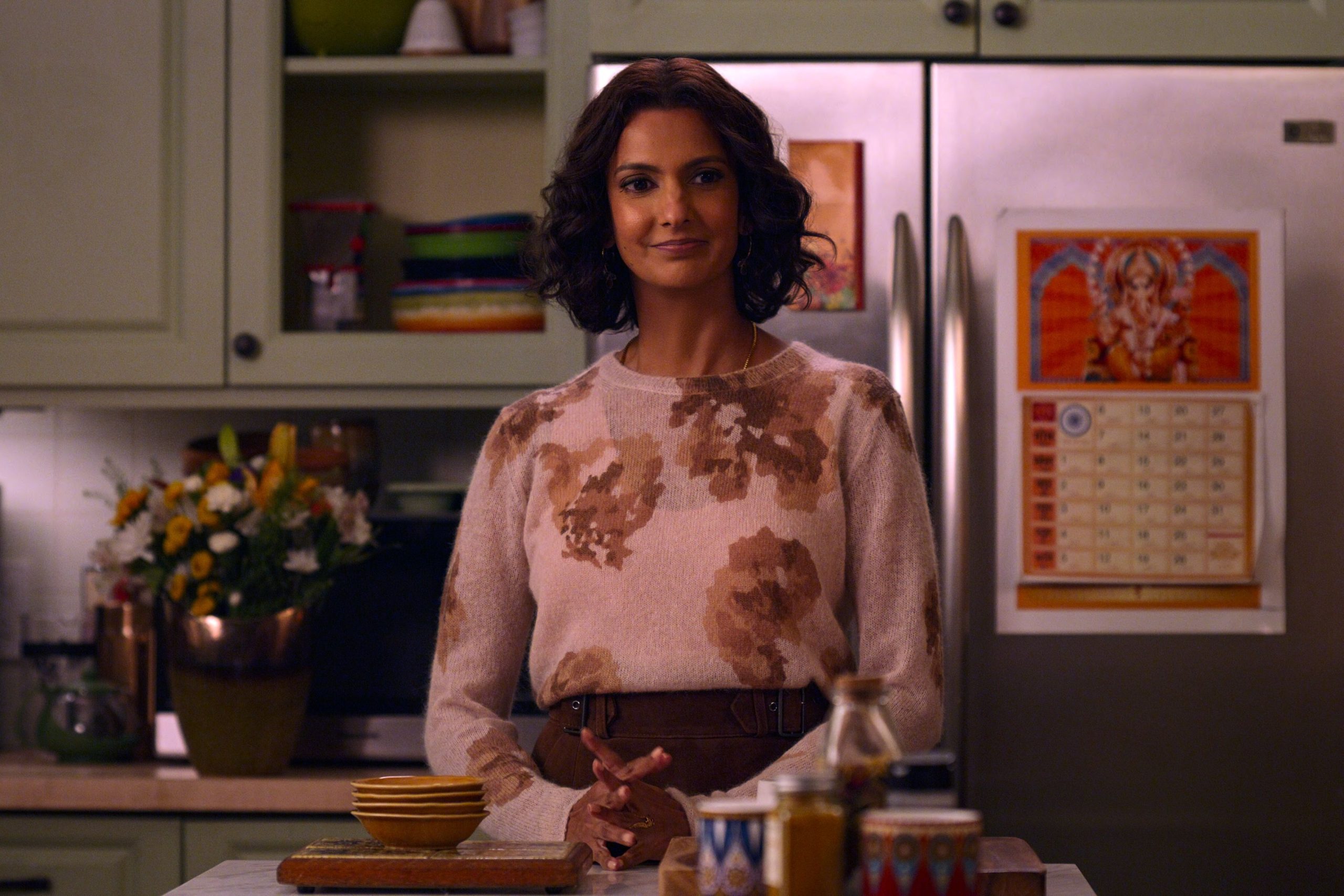
ELLE: Your role in Never Have I Ever has been celebrated for its authenticity. How do you balance personal experiences with the character’s narrative arc?
PJ: Nalini might be the character that’s closest to who I am: a South Indian, professional immigrant woman with a college-bound kid. The role taught me so much about parenting; that kids just want to feel a sense of belonging. Having gone through NHIE prepared me to send my kid off to college this fall – from the college application process to the actual send-off – I felt like I was sending my second kid off to college vs. my first. Like I had had a dry run. I was also able to bring so much of myself to the role – I had so much input. From sourcing the costumes to the food we ate on set to my decision to wear the thali for longer because that’s what my own mother did when I lost my dad. I knew the character from the inside out. But it wasn’t an exception – I now go on every set and have learned to contribute at that level every time.

ELLE: What was the most surprising or unexpected reaction received from audiences regarding the portrayal of Nalini? How do you prepare mentally and emotionally for roles that require significant vulnerability or depth?
PJ: I’ll never forget the time that a young trans woman came up to me in Mumbai and thanked me for the show but also thanked me for mothering her, especially at times when her own mother couldn’t show up for her. I’m always so struck by the profound healing effect this show has had on children, especially kids of immigrants. Well, the best preparation that has never failed me is reading the script and falling in love with it. Good writing will make everything – the emotions, the arc, the journey – just come effortlessly. I have said yes to bad scripts either because I was broke or some really big names were attached. I hope to never make that mistake again. My acting becomes so laboured when the writing is bad.
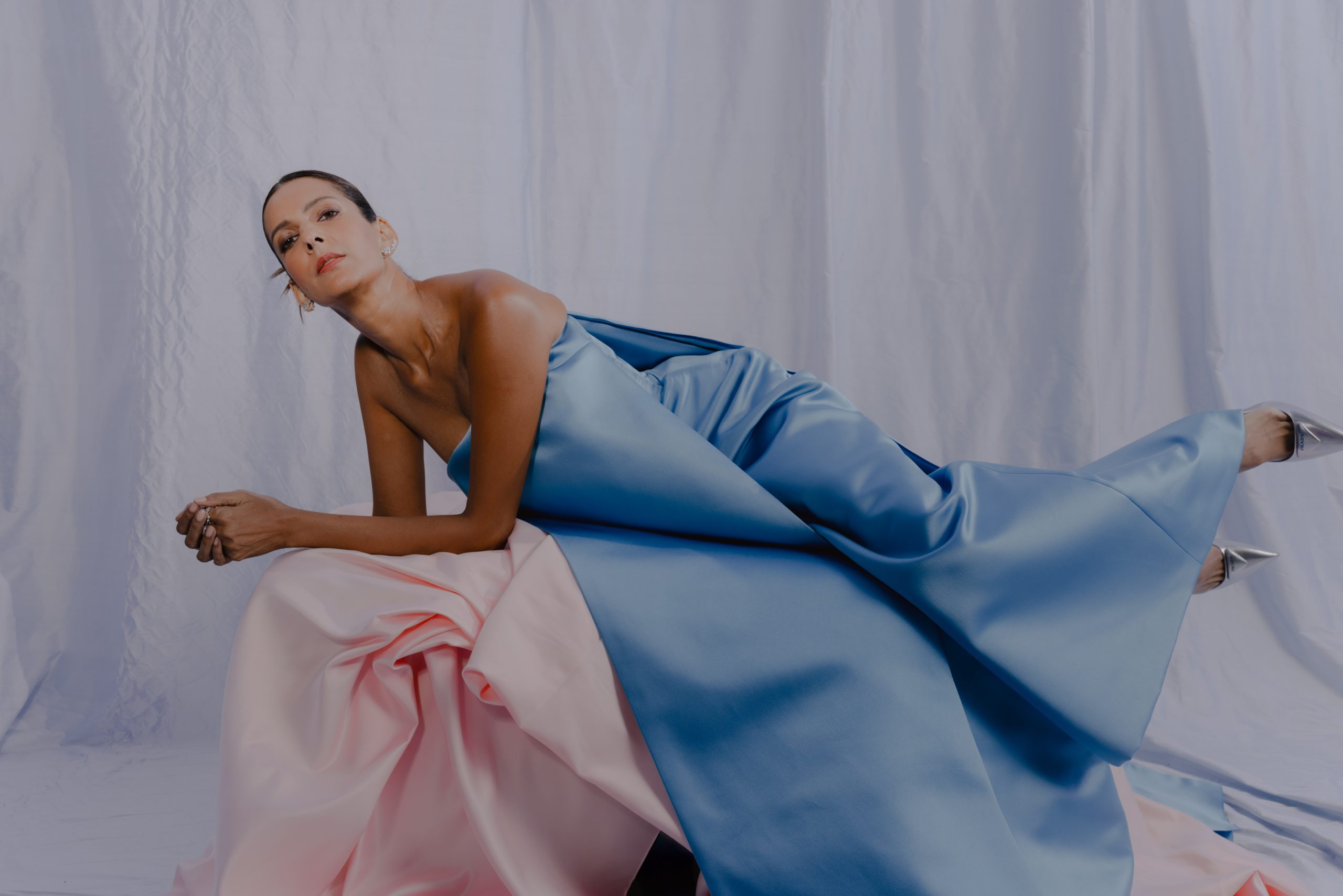
ELLE: You’ve mentioned feeling like a “diversity hire” early in your career. How has that perception changed as you’ve taken on more complex roles?
PJ: Oh, trust me, it’s still very much a thing. The big change that’s happening is that on a parallel track, creators of colour are creating more complex characters for women of colour. And streamers like Hulu and Netflix are making space for those storylines. But trust me, the majority of auditions that come my way still give “best friend of colour” vibes.
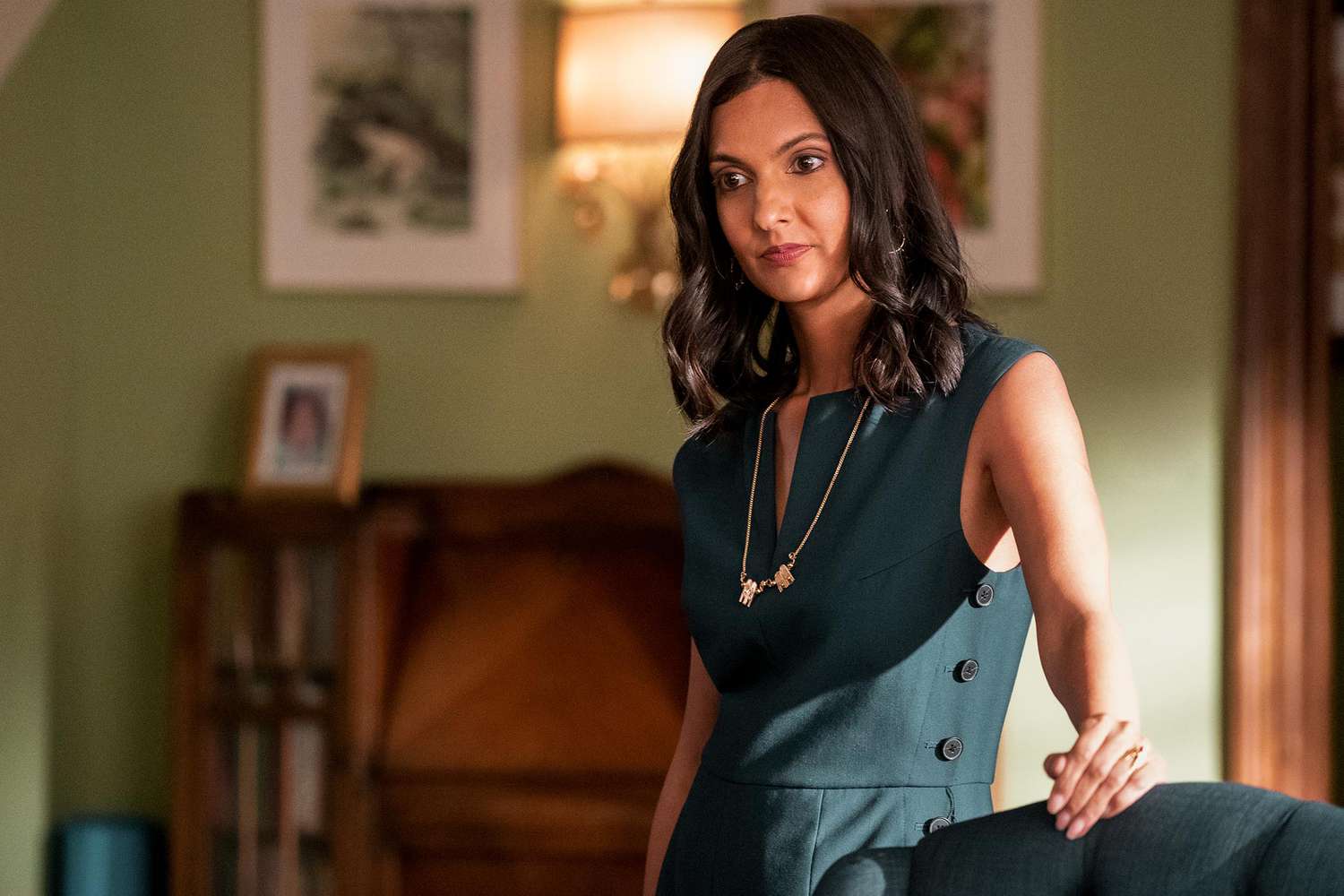
ELLE: What specific stereotypes about South Asian women do you hope to dismantle through your work, and how do you go about doing that?
PJ: So many – a huge dream of mine was to dismantle the image of the Indian immigrant mothers, which NHIE did a great job of – introducing us to a multi-dimensional woman. I think the portrayal of South Asian women as holding it all together is toxic – I want to portray characters who have addiction, and trauma that haunts them. I am also fifty-one, so there’s a personal mandate to step into roles that show the complexity, humour and beauty of women my age.
ELLE: How has your journey as a global nomad shaped your identity?
PJ: I’m a total product of travel, of growing up in different countries. I learned instinctually that to fit into new environments, I had to pick up not only the language really fast but all the cultural nuances and mannerisms. I hated being an outsider. Even now, my accent and body language will change depending on who I’m talking to – it’s an inbuilt mechanism.
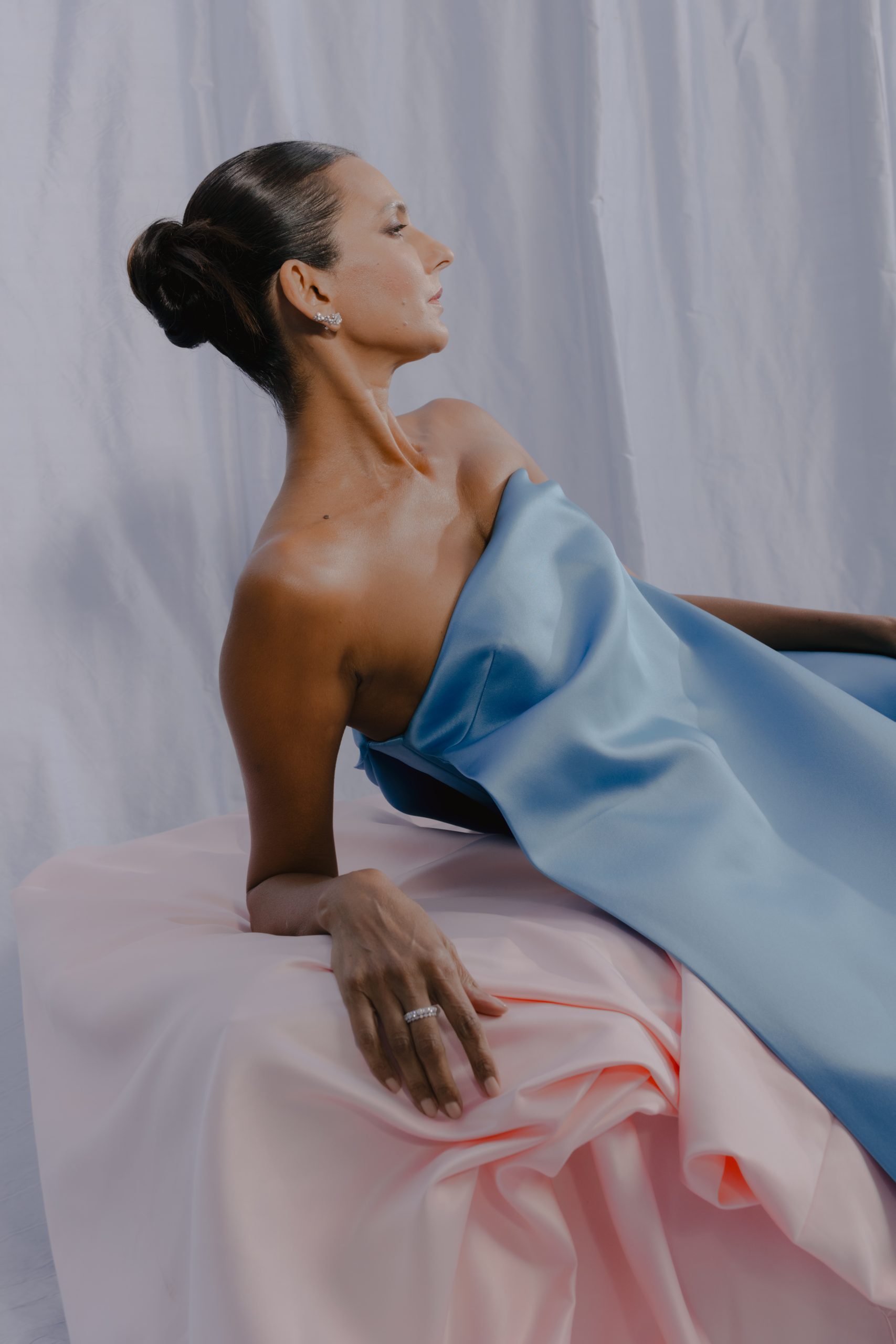
ELLE: Can you share a specific moment from your travels that profoundly influenced your approach to acting?
PJ: Believe it or not, it was on my 20th birthday. I got caught in a riptide in a beach in Bahia Brazil and that near-death experience woke me up from a numbness that I had cultivated as a child probably as a defence mechanism. That experience unlocked so much emotion for me that I think it was the beginning of my acting journey.
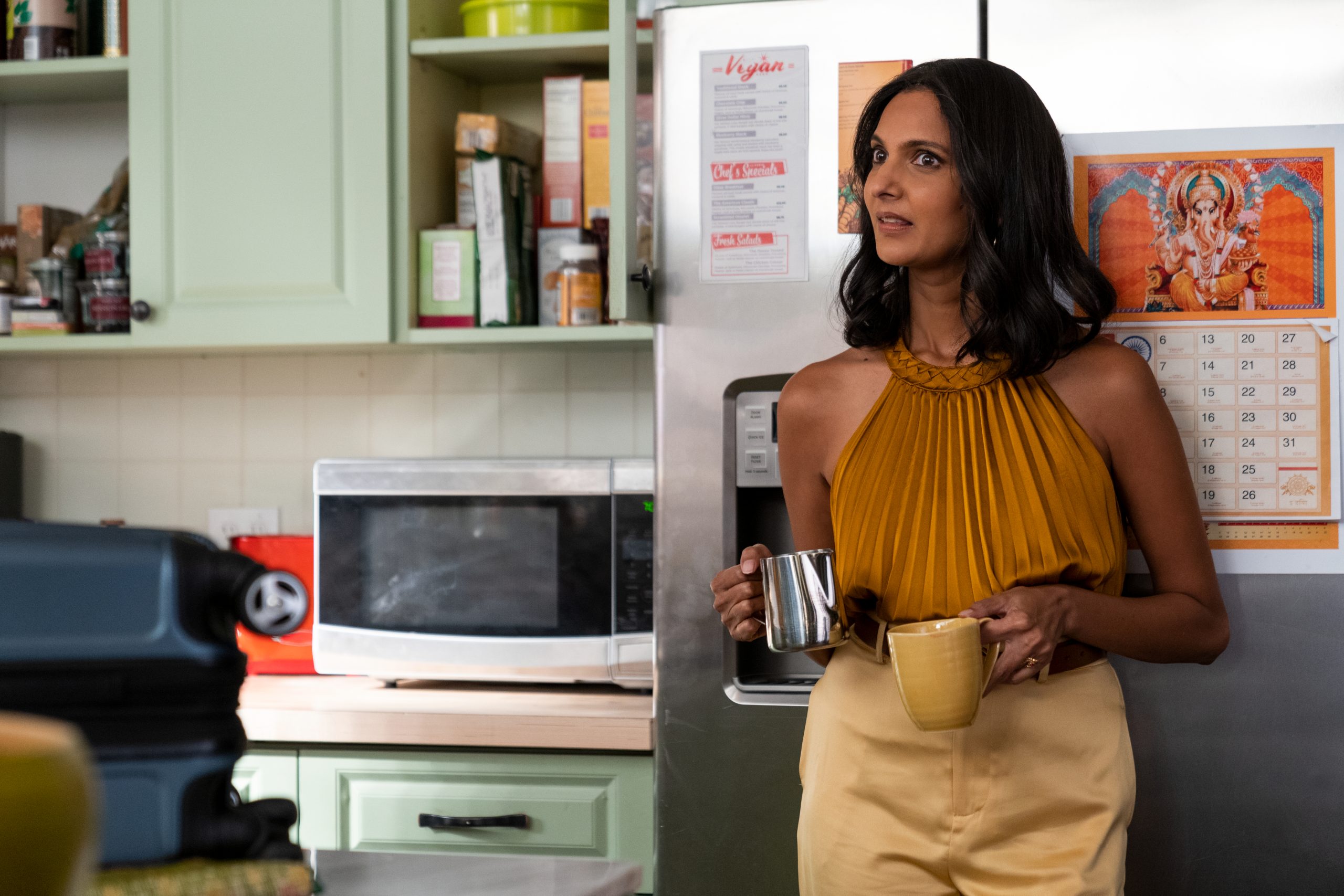
ELLE: How does fashion play a role in character development for you?
PJ: It’s pivotal – like for Never Have I Ever, Mindy and the costume designer Salvador Perez wanted to present Nalini as a sophisticated woman with great taste in clothes – very contrary to how we see immigrant mothers presented on TV and film. We made so many decisions that influenced my acting choices. For example, when Nalini is seen in flashbacks to when she first moved to the States, she is seen in more traditional Indian clothes, and so in those flashback scenes, my Indian accent is stronger, and I wear my hair long. For my new show, Deli Boys, I play a fierce drug dealer called Lucky. And she dresses part gangster and part aunty. It helped me find this weird tone of nurturing and being ruthless at the same time.
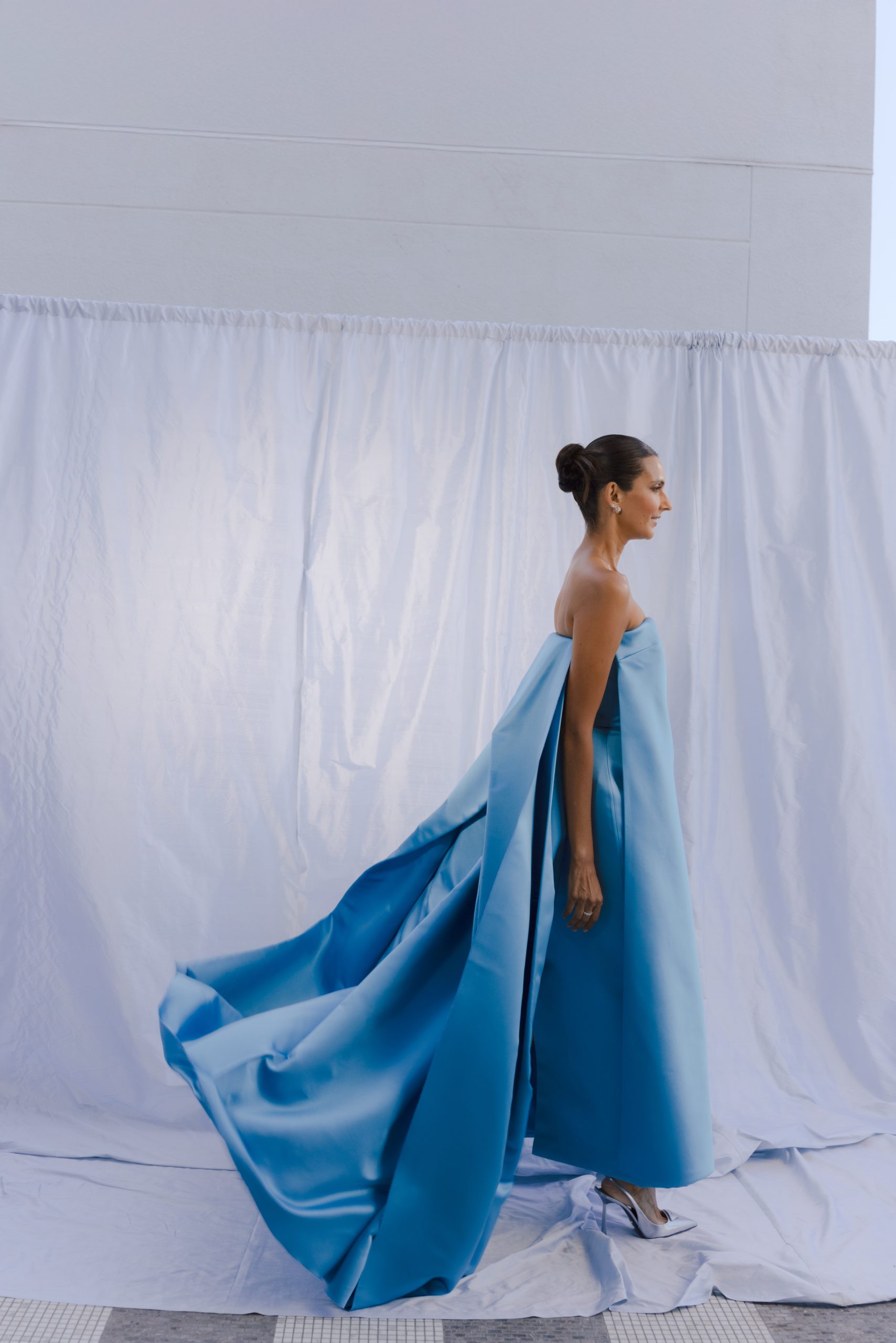
ELLE: How would you describe your personal style? And who are your favourite designers?
PJ: I’m drawn to a more masculine silhouette. When I see a woman in a well- tailored suit, I lose my shit. Dolly Singh recently wore a sari-suit for a recently held awards, and I am still thinking about it. I’m also a sucker for all things ‘80s. So put a big shoulder in anything, and I’ll take it. And well, whenever I step into a Prada anything, I feel like it’s made just for me. Like the dress was just hanging out and waiting for me. But I love what Gaurav Gupta is doing. I’m digging Harri, too.
ELLE: How do you define success in your career, especially after achieving recognition in film and television?
PJ: The ability to say no to projects that stereotype me or don’t serve my community is a huge marker of success to me.
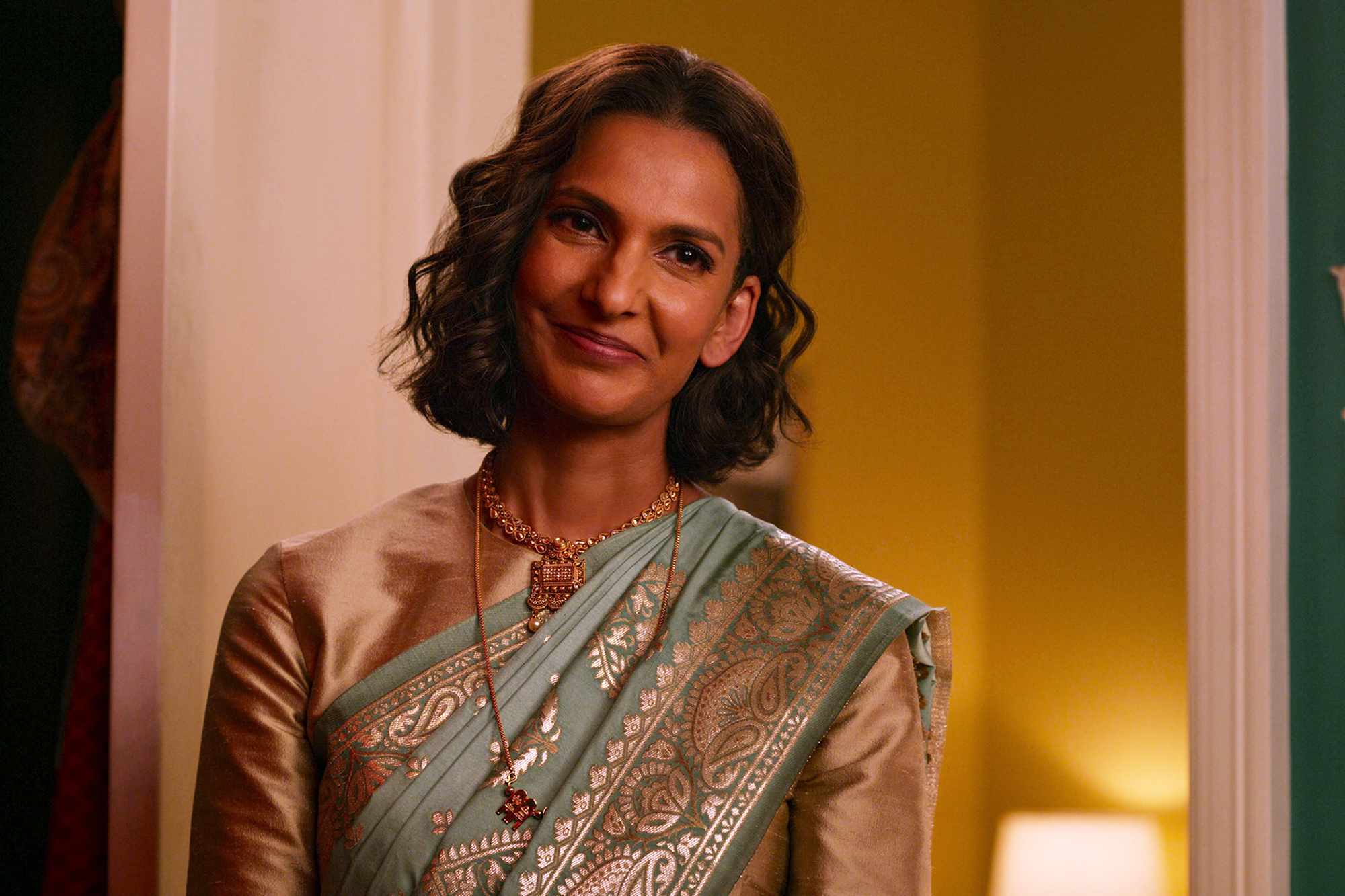
ELLE: Finally, if there was one aspect of your journey that you wish more people understood about being an actor, what would it be?
PJ: I think it’s the constant training that is hard for people to understand. To be a decent actor, you have to practise the craft rigorously. I train most days, I’m always in class, and when I have a project, a huge amount of work goes into character development and making the dialog feel natural and effortless. My best friend is another actress called Sarita Choudhury, and we’re on FaceTime every day for hours working on the scenes we are shooting. Acting is pure joy for me, but without the rigour of training, I’d be floundering. Very few people are gifted enough to wing this profession – I’m certainly not one of them.

